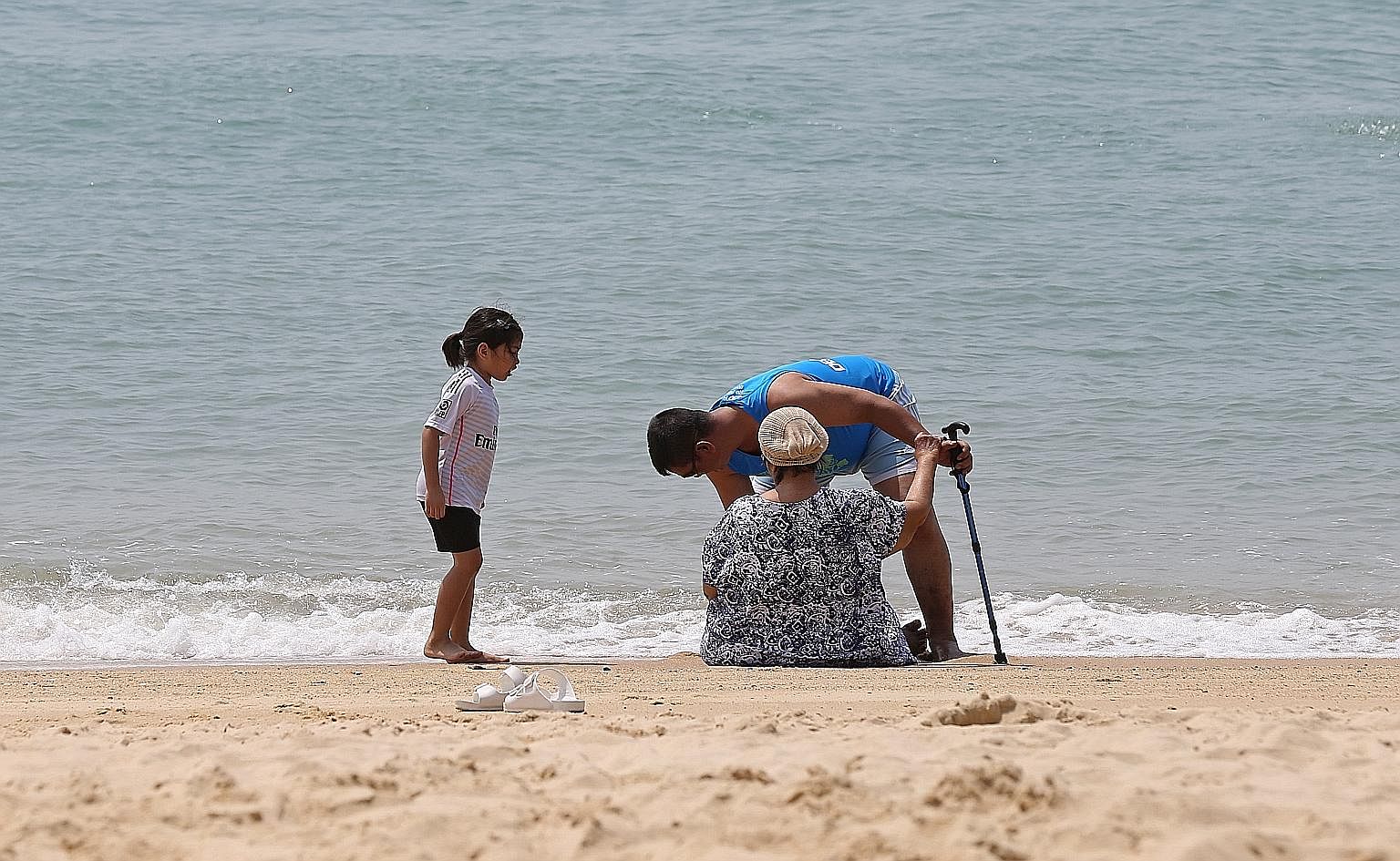Family continues to be a fundamental pillar of society. The social norm in our society is that of a couple marrying, and bringing up children. Indeed, Singaporeans continue to have strong aspirations to get married and have children.
Today, as families get smaller, we also see the extended family coming in to provide meaningful relationships and support. Every individual is still very much a part of a family, regardless of age, marital status or living arrangement.
More types of family forms have been emerging over the years, and gradually shaping our conception of Singaporean families. These are not forms that have risen overnight. They have evolved over years and decades.
First, transnational couples form a significant part of our marriage cohort. This has led to greater ethnic and cultural diversity in our families.
Second, we have seen a rise in the number of reconstituted families.
More people divorce and then remarry. The 2016 Marriage and Parenthood Survey found that over four in five young Singaporeans want to get married, and over nine in 10 married couples want to have two or more children.
In reconstituted households, one or both parents have children from a previous marriage, some can be young and some can be grown up and they may live without their children, or with their step-children in a new family.

Last year, 23 per cent of marriages were remarriages for one or both parties, just a 4 percentage point increase from 2000.
Third, there is a growing number of people who are delaying marriage, or not marrying at all.
We have seen an increase in the never-married, one-person households, which nearly doubled from the year 2000 to last year. Last year, there were 168,000 of such households.
Supporting marriage and parenthood remains a key priority. However, we have been adjusting our policies over the years to meet the needs of those who remain single.
Since 2013, singles aged 35 and above have been able to apply for BTOs (Build-To-Order) flats, and are eligible for HDB (Housing Board) housing grants. Those who buy resale flats to live with or near their parents are also eligible for the grants.
The fourth observation is on single-parent households, which are about 7 per cent of all resident households. These households are mainly headed by widowed, divorced or separated parents, but they also include unwed parents - unwed mothers and unwed fathers. The exact numbers are 75,400 in 2000 and 167,900 last year.
Parliament debated the issue of extending paid maternity leave to unwed mothers over many years.
We made that change last year, so that they can better care for their children.
This year, HDB removed the three-year time bar for divorcees to buy or own a subsidised flat, to support their housing needs and that of their children.
And, we will continue and must continue to review our policies to accommodate families in different circumstances.
The final observation is that, besides the family and its variant forms, there are also other social forms in Singapore society that we should be aware about.
I spoke about single-parent households earlier, largely headed by divorcees or widows, but also including single unwed mothers or fathers.
Second, there are households where we see grandparents effectively taking on the role of parents, to look after their grandchildren, because the parents are no longer in the picture, for a variety of reasons. This could be because of divorce, abandonment, demise or incarceration of the parents. The grandparents often apply to be legal guardians and play the role of parents.
Third, we also see households where the older siblings exhibit parentified behaviour, or they behave like parents to their younger siblings - they have to step up to perform the role played by parents, even at a young age, because the parents are absent. I have seen some cases, for example, where siblings have to fend for themselves because their parents divorce, each remarry, form their own families, and neither side wants the children from their initial families.
In some cases, extended family - uncles, aunts - step in. But when they grow up, they end up being on their own.
Fourth, we have co-habitee households. These can comprise heterosexual or homosexual couples.
Our social policies balance between maintaining strong support for marriage and family, while making space for the increasingly prominent diversity in family and social forms. But it is not government policy on its own that decides the future of society and family forms and social forms. Societies themselves, communities, families are what shape social discourse and the direction in which society evolves.
FORMING A SINGAPOREAN IDENTITY TOGETHER
Identity constantly evolves, changes and forms. It is not immutable. Our Singaporean identity also has to be constantly formed and re-formed as society and its aspirations change.
Society in Singapore must continue to celebrate diversity and strive for inclusivity. We must remember the idea of Singapore - that we may all be different, but yet, in many important ways - we are the same. We love our food, we do NS (national service), we speak Singlish, we drink recycled water. We are all the same in the broader circle of things. And we must continue to feel this way, to do this in spite of the challenges and trends that are pulling in different directions. There may be calls towards exclusive identities that pull away from the broader Singapore narrative. More than ever we have to put our heads together, and retain our commitment to work towards a common future. This is our responsibility and duty to one another and the future generations.
• Desmond Lee is the Minister for Social and Family Development.
